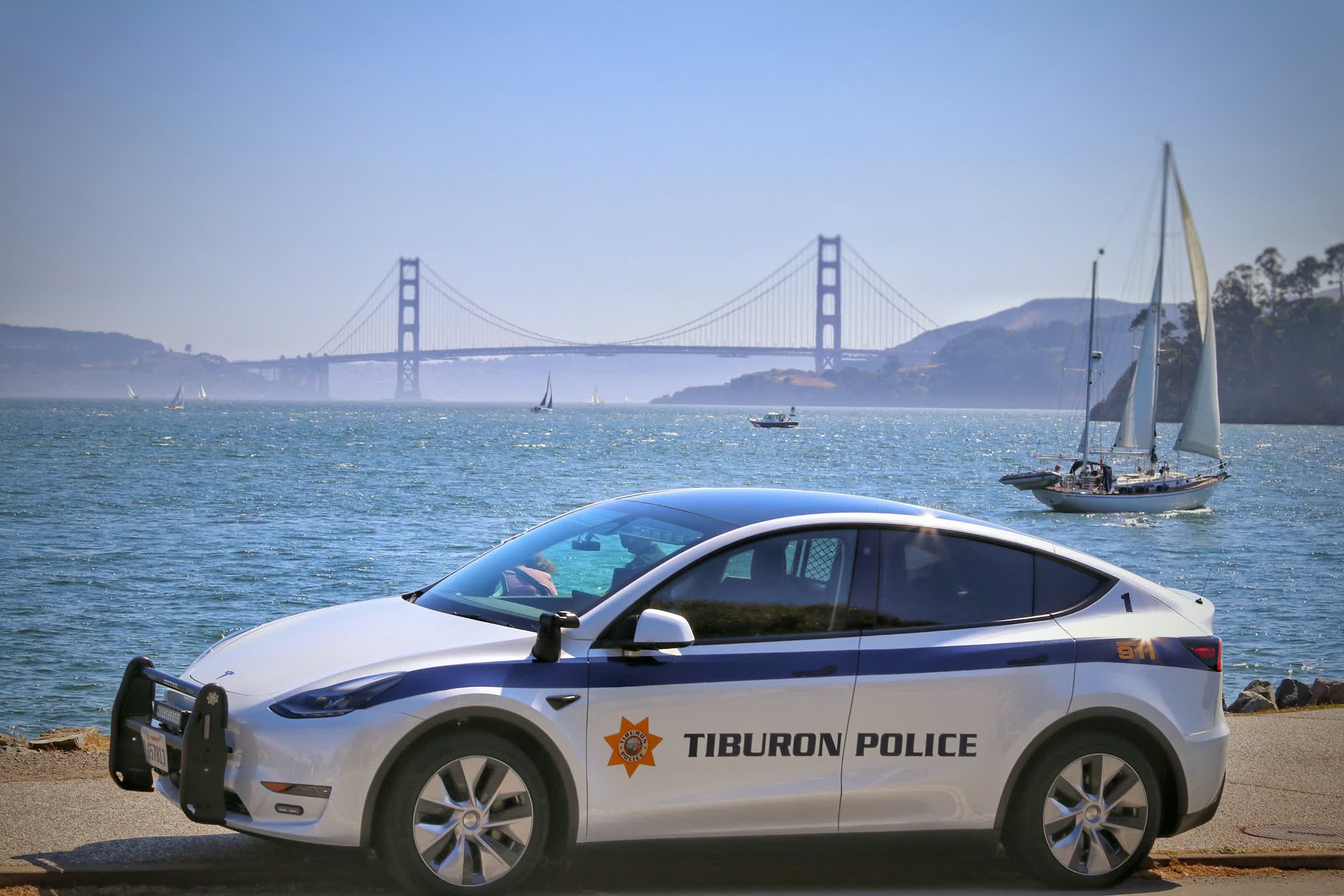In brief: Police are facing a new reality on the roads, one their aging fleets may not be equipped to handle. Long the undisputed kings of pursuit, even the mighty Dodge Charger's 6-second sprint to 60 mph is getting dusted by the latest EVs. Thanks to the success of models like the Tesla Model Y and Hyundai Ioniq 5 N, fleeing suspects now have a wicked new advantage.
Several modern EVs are nearly twice as fast as the Charger, able to hit 60 mph in under 3 seconds. According to law enforcement's own testing, the 2024 Kia EV6 GT rips to 60 mph in just 3.2 seconds while boasting a higher top speed than standard police cruisers.
A recent report by WMTV 15 News has highlighted how this gap is causing major concerns. Controlled tests have already shown police cruisers struggling to keep up with EVs – real-world incidents are piling up and the report has pointed out multiple such cases.
During a pursuit in West Memphis, Arkansas, a state trooper tried executing a PIT maneuver twice to stop a fleeing Tesla Model Y, but both times the EV just zoomed away. It was only stopped after hitting spike strips. Police departments nationwide are therefore looking to diversify their fleets with these new age vehicles.

Take Georgia Tech Police Department for example. While the department avoids highway pursuits, they still need quick acceleration when responding to urban emergency calls. That's why they've added three Mach-E GTs to the fleet, assigning them to patrol officers.
This EV switchover is not just limited to Georgia – it's happening everywhere from small towns to major cities. Vermont agencies have leveraged state and federal grants to invest in EVs as part of some lofty transition targets. Even the US Department of Justice has evaluated transitioning to electric police vehicles, the report notes.
Beyond speeds, long-term cost savings are also a big reason behind these switchovers. Research shows taxpayer savings of around $5,000 per year for each EV cruiser thanks to reduced fuel and maintenance costs. Georgia Tech estimates nearly $4,000 in annual fuel savings alone for each EV.
There are some drawbacks, though, like charging needs during pursuits and limited space for transporting arrestees. Still, the future of law enforcement fleets is clearly charged up.
A Georgia Tech police lieutenant told the publication that she envisions the entire fleet will be electric at some point, with some going the hybrid route too. With benefits in both costs and speeds, it's easy to see why.
Image credit: Jim Harris, John Jones Police Pursuit Vehicles
